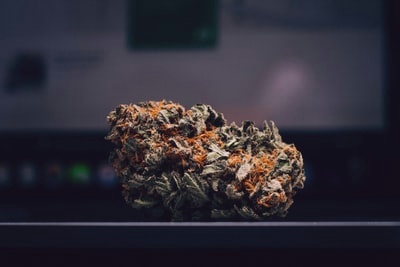By Patrick “Rick” Cox and Vincent Tennant, Nixon Peabody LLP
Cannabis is a controlled substance under federal law and as such § 280E of the Internal Revenue Code [1] (“§ 280E”), does not allow a cannabis business to use business expenses to reduce its taxable income. However, § 280E does not always apply to the same cannabis company’s expenditures properly treated as “cost of goods sold” (“COGS”). The higher COGS, the smaller taxable income, so some business owners may have the logical response to their tax advisor: “move everything to COGS!”
On April 21, 2021, the Ninth Circuit affirmed the Tax Court’s decision in Harborside[2] that enforces § 280E, but also notes that § 280E does not preclude a cannabis business from excluding “necessary charges incurred in acquiring possession of the goods” from their taxable income as a “reseller” under Treas. Reg. § 1.471-3 (“§ 1.471-3”). However, the court denied the taxpayer’s attempt to shift certain indirect costs from § 280E to COGS. So, the question is then, “How do I move everything to COGS?”
A basic understanding of how business expenses (subject to § 280E) and exclusions from gross income (COGS) operate to arrive at taxable income is helpful to this discussion. First, a taxpayer derives gross income by calculating sales, less COGS. If a taxpayer buys a widget at wholesale for $100 and sells it at retail for $120, gross income is $20. If that same taxpayer employed a sales person and paid her $10, that would be a business expense and reduce gross income from $20 to $10, to arrive at taxable income of $10.
One might ask, what’s the difference, since you get to use COGS to reduce your ultimate tax liability anyway? Importantly, in some cases in order to get the benefit of COGS you have to sell the widget (for merchandisers). If the widget sits on the shelf for years, there is a deferral of the benefit. Second, a business expense can offset any income, not just income relating to the widget sale, so typically businesses prefer business expenses over COGS.
However, this is not the case with cannabis businesses, since they are denied business expenses under § 280E. So, back to the question, “How to move expenditures to COGS?” The taxpayer in Harborside failed to move certain expenditures to COGS because of its status as a “reseller” and the regulations under § 471, which apply specific technical rules to what can and cannot be included in COGS.
Therefore, one takeaway from Harborside is to undertake careful tax planning with your tax counsel or accountant long before you get to the court steps. Careful tax planning for a cannabis business should occur on formation and during the business planning stages and include an assessment of the nature of transactions between the business and its affiliates as well as third parties. A grower of cannabis likely would be treated differently than a dispensary, and a vertically integrated business may have more opportunities as compared to a horizontally integrated business. Contractual relationships should be managed so as to memorialize the intended treatment.
At the same time, remember, absent cannabis’s status as a controlled substance, the cannabis company would prefer business expenses over COGS, so careful tax planning would also take into consideration the likely possibility that someday cannabis will be legalized at the federal level. When moving as much as you can to COGS, make sure you don’t paint yourself into a corner by setting up your business in a way that cannot be reorganized in the future.
______________________________________________________________________
All references to “Code” or “§” are to the Internal Revenue Code of 1986, as amended and all Treasury regulations promulgated thereunder.
Patients Mut. Assistance Collective Corp. v. Comm’r of Int. Rev., 151 T.C. No. 11 (U.S. Tax Ct.), and subsequent determination,T.C. Memo. 2018-208 (Dec. 20, 2018), aff’d, No. 19-73078, 2021 WL 1570288 (9th Cir. Apr. 22, 2021).
______________________________________________________________________
About the Co-Author
Vincent Tennant is an associate in Nixon Peabody’s M&A and Corporate Transactions practice group. His practice focuses on mergers and acquisitions, private investments, corporate transactions, and data privacy compliance.
The post The Cannabis Industry Should Employ Careful Tax Planning When Allocating between Cost of Goods Sold and Ordinary Business Expenses appeared first on Cannabis Business Executive – Cannabis and Marijuana industry news.






